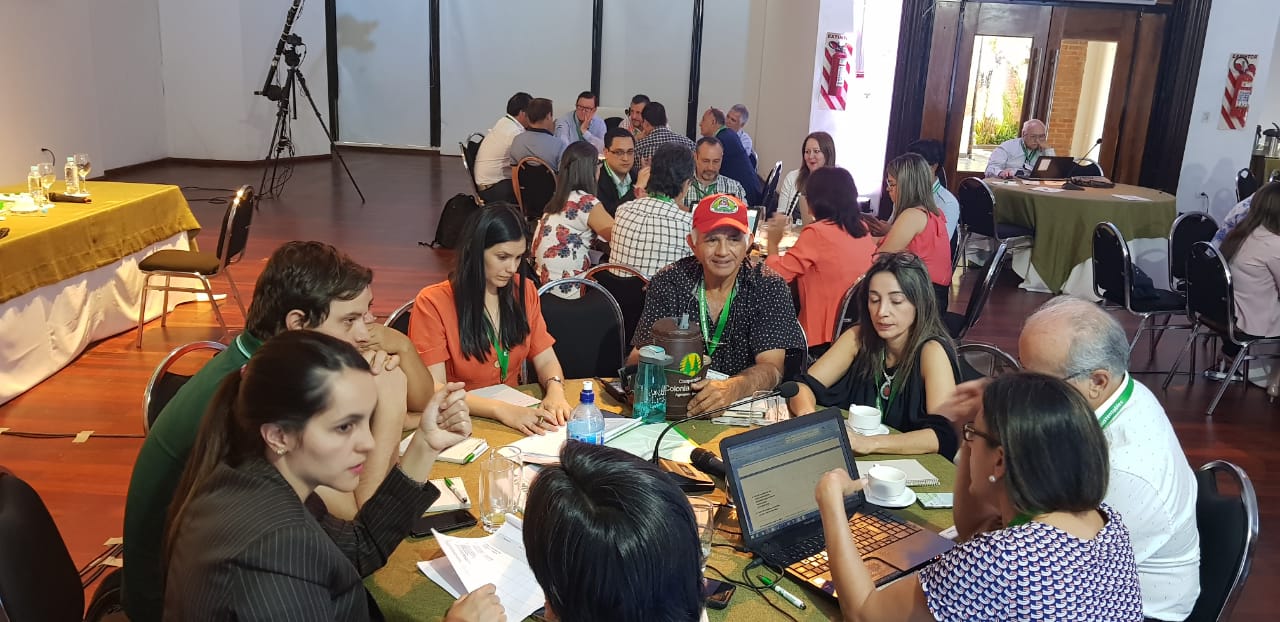In Paraguay, 75% of young people who do not study or work are women. The majority stopped studying and do not work formally because they are engaged in unpaid care work of a family member or perform household chores. Currently, Paraguay remains the country with the lowest political representation of women in Congress among Spanish-speaking Latin American countries, in addition to being a country whereby women receive only 77.8% of men's wages.
Despite the widespread belief that agricultural tasks are eminently masculine, women make an important contribution to the soy and beef production chains, two commodities that have constituted, together with energy, 80% of Paraguay's exports for several decades.
© UNDP Paraguay - Lilian Mercedes Bohn, Producer in Caaguazú, Vaquería, Paraguay.
A particular example of women’s contribution can be found in the National Platforms for Sustainable Soy and Beef, led by the Ministry of Environment and Sustainable Development (MADES), implemented by the United Nations Development Program (UNDP), funded by the Global Environment Facility (GEF), and created as a neutral space for dialogue between the key actors in the supply chains of these commodities.
The participation and leadership of women at the technical level stood out in the elaboration of the action plans of these platforms, where they represented 40% of the stakeholders involved in dialogue and concept proposals. Ultimately, women proved to perform equal tasks to men in Paraguay’s agricultural sector, despite the immediate lack of recognition of such fact.
© UNDP Paraguay - Working group meetings - National Platform for Sustainable Soy
Accordingly, the conversation “Being a Woman in the Supply Chain of Sustainable Commodities” was held in October 2019, convening women representatives from different areas of agricultural production. The occasion fostered the opportunity to gauge the perception of their participation in these spaces of dialogue and in commodities supply chains. More than 60 women leaders attended the event. Among them were representatives from different levels such as cooperatives, unions, public institutions, private sector companies, international organizations, academia and civil society.
The conference included a keynote lecture on “Gender Integration in the Sustainable Value Chain” by Sith Ying Sanchez, international expert of Sustainable Agribusiness Development and Inclusive Businesses, from the Tropical Agricultural Research and Training Center (Spanish acronym: CATIE) of Costa Rica. In addition to the sharing of personal and professional experiences on the most significant challenges they had to overcome to occupy the position they are in, the panels and worktables also served as a platform to discuss the barriers that still exist from allowing women to occupy leadership roles, and demonstrated the need to install a joint collaborative space to promote their participation in the development process.
The working groups concluded that the greatest contributions of women in the supply chain can be found in the areas of research, education and promotion of good agricultural practices. They also found that the main challenges they face in accessing leadership positions are the management of emotional capacities, technical capacities, legal certainty, lack of dialogue spaces for debate, and the access to credits and property titles. Correspondingly, training opportunities in technical and emotional skills, transparency in the selection processes, labor improvements and access to credits were the common themes proposed to improve their participation in the public and private sectors.
This space dedicated to women sought to be the first action of continued commitment to generate greater visibility of their participation in the agricultural sector, and to promote projects that can be carried out at the departmental (Itapúa and Alto Paraná) regional (Chaco), and the national level. The long term aim would be to promote the inclusion of women in economic activities and to create more egalitarian societies, where all people can exercise their rights, have the same opportunities to strengthen their capacities, empower themselves and get more prominence in the development of the country.
© UNDP Paraguay - Participants at the 'Being a Woman in the Supply Chain of Sustainable Commodities' event.
Both the Platforms and the event held served as a space to contribute to the achievement of the Sustainable Development Goals, such as SDG 5 for Gender Equality and SDG 17 Partnerships for the Goal.

 Locations
Locations







